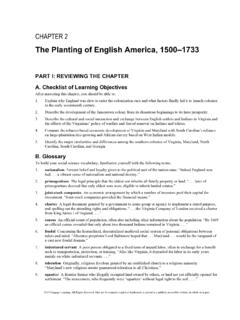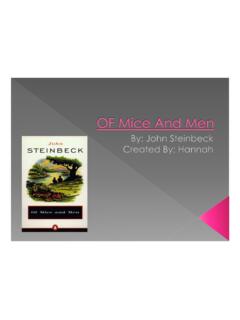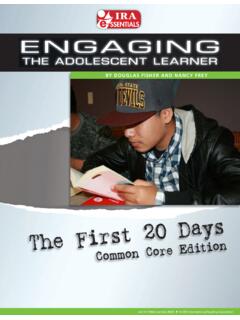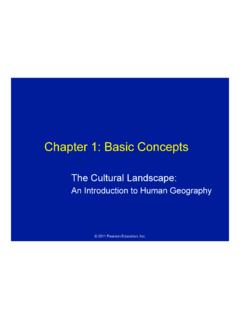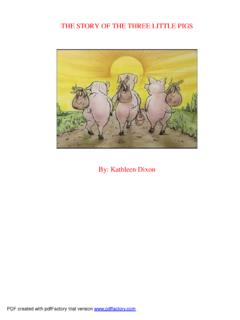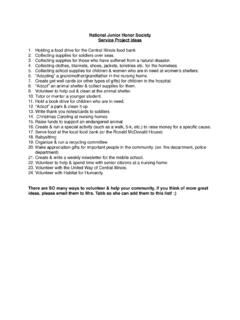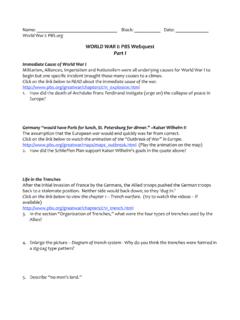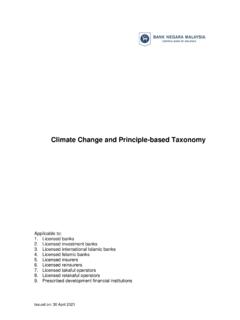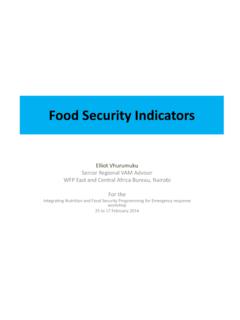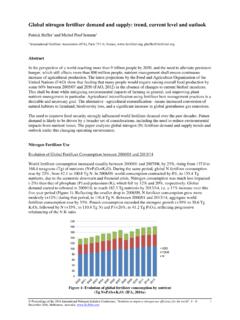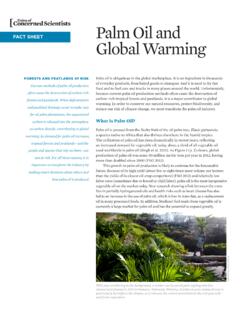Transcription of The Scramble for Africa - Springfield Public Schools
1 The Age of Imperialism773 MAIN IDEAWHY IT MATTERS NOWTERMS & NAMESEMPIRE BUILDINGI gnoring theclaims of African ethnic groups,kingdoms, and city-states,Europeans established nations continue to feelthe effects of the colonialpresence more than 100 yearslater. imperialism racism Social Darwinism Berlin Conference Shaka Boer Boer War1 SETTING THE STAGEI ndustrialization stirred ambitions in many Europeannations. They wanted more resources to fuel their industrial production. They com-peted for new markets for their goods.
2 Many nations looked to Africa as a sourceof raw materials and as a market for industrial products. As a result, colonial pow-ers seized vast areas of Africa during the 19th and early 20th centuries. This seizureof a country or territory by a stronger country is called imperialism. As occurredthroughout most of Africa , stronger countries dominated the political, economic,and social life of the weaker Before European DominationIn the mid-1800s, on the eve of the European domination of Africa , African peo-ples were divided into hundreds of ethnic and linguistic groups.
3 Most continuedto follow traditional beliefs, while others converted to Islam or Christianity. Thesegroups spoke more than 1,000 different languages. Politically, they ranged fromlarge empires that united many ethnic groups to independent had established contacts with sub-Saharan Africans as early as the1450s. However, powerful African armies were able to keep the Europeans outof most of Africa for 400 years. In fact, as late as 1880, Europeans controlledonly 10 percent of the continent s land, mainly on the , European travel into the interior on a large-scale basis was vir-tually impossible.
4 Europeans could not navigate African rivers, which had manyrapids, cataracts, and changing introduction of steam-powered river-boats in the early 1800s allowed Europeans to conduct major expeditions into theinterior of Africa . Disease also discouraged European , Africans controlled their own trade networks and provided the tradeitems. These networks were specialized. The Chokwe, for example, devotedthemselves to collecting ivory and beeswax in the Angolan Compete for Overseas EmpiresThose Europeans who did penetratethe interior of Africa were explorers, missionaries, or humanitarians whoopposed the European and American slave trade.
5 Europeans and Americanslearned about Africa through travel books and newspapers. These publicationscompeted for readers by hiring reporters to search the globe for stories of adven-ture, mystery, or Scramble for AfricaOutliningUse an outlineto list the forces andevents surroundingimperialism in NOTESThe Scramble for AfricaI. Africa BeforeEuropeanDominationA. Forces DrivingImperialism774 Chapter 27 The Congo Sparks InterestIn the late 1860s, David Livingstone, a missionaryfrom Scotland, traveled with a group of Africans deep into central Africa to pro-mote Christianity.
6 When several years passed with no word from him or his party,many people feared he was dead. An American newspaper hired reporter HenryStanley to find Livingstone. In 1871, he found Dr. Livingstone on the shores ofLake Tanganyika. Stanley s famous greeting Dr. Livingstone, I presume? made headlines around the set out to explore Africa himself and trace the course of the CongoRiver. His explorations sparked the interest of King Leopold II of Belgium, whocommissioned Stanley to help him obtain land in the Congo.
7 Between 1879 and1882, Stanley signed treaties with local chiefs of the Congo River valley. Thetreaties gave King Leopold II of Belgium control of these claimed that his primary motive in establishing the colony was to abol-ish the slave trade and promote Christianity. However, he licensed companies thatbrutally exploited Africans by forcing them to collect sap from rubber plants. Atleast 10 million Congolese died due to the abuses inflicted during Leopold s a result of his cruelty, humanitarians around the world demanded changes.
8 In1908, the Belgian government took control of the colony away from Leopold. TheBelgian Congo, as the colony later became known, was 80 times larger thanBelgium. The Belgian government s seizure of the Congo alarmed France. Earlier,in 1882, the French had approved a treaty that gave France the north bank of theCongo River. Soon Britain, Germany, Italy, Portugal, and Spain were also claimingparts of Driving ImperialismThe motives that drove colonization in Africa were also at work in other economic, political, and social forces accelerated the drive to take over landin all parts of the globe.
9 The Industrial Revolution in particular provided Europeancountries with a reason to add lands to their control. As European nations industri-alized, they searched for new markets and raw materials to improve their in European SuperiorityThe race for colonies also grew out of a strongsense of national pride. Europeans viewed an empire as a measure of national great-ness. As the competition for colonies intensified, each country was determined toplant its flag on as much of the world as possible. This stampcelebrates thecentenary (100th)anniversary ofStanley andLivingstone smeeting in Europeans believed that they were better than other peoples.
10 The beliefthat one race is superior to others is called racism. The attitude was a reflection ofSocial Darwinism, a social theory of the time. In this theory, Charles Darwin sideas about evolution and survival of the fittest were applied to human who were fittest for survival enjoyed wealth and success and were consid-ered superior to others. According to the theory, non-Europeans were considered tobe on a lower scale of cultural and physical development because they had notmade the scientific and technological progress that Europeans had.
